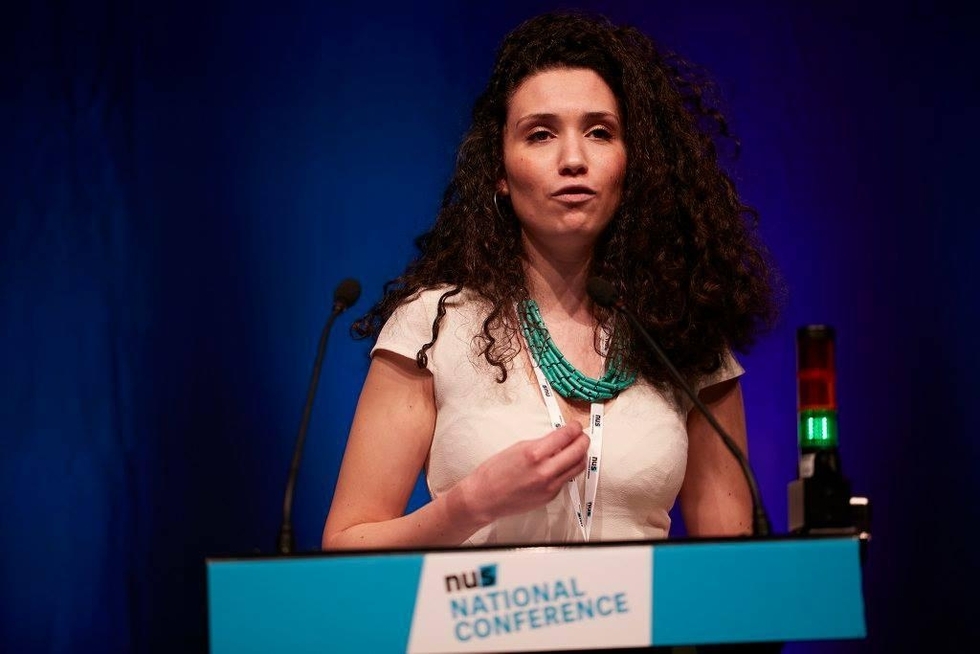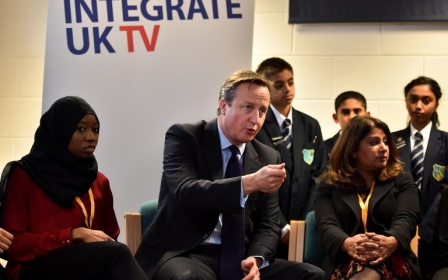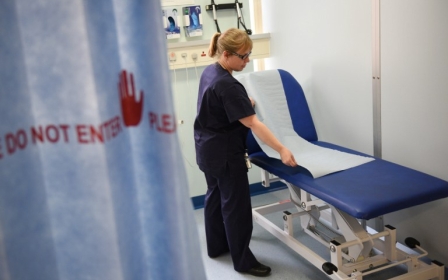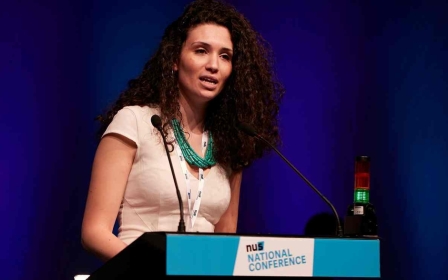Muslim students 'avoiding politics' over extremism register fears

Muslim students in the UK with ambitions to be doctors or nurses fear that their careers could be jeopardised if they get involved in political activism or humanitarian work amid growing concerns about government efforts to tackle so-called Islamist extremism in universities.
Details of a new extremism bill are expected to be announced by the British government in the Queen’s Speech on Wednesday, with reports suggesting it could include measures to create an extremism register to allow employers to check potential employees’ background and bar individuals deemed extremist from working with children or vulnerable people.
But officials from the Federation of Student Islamic Societies (FOSIS), which represents nearly half a million Muslim students in the UK, said that the proposals were “counter-productive” and risked “criminalising Muslims wanting to be political”.
“The government’s definition of what constitutes extremist behaviour is so vague, that it leaves little to the imagination of what is in fact extremist,” Yusuf Hassan, FOSIS’s vice president, told Middle East Eye.
“The vague nature of what constitutes extremism is forcing Muslim students to police themselves and be wary of what they say or do on their campuses. It is preventing them from gaining the most out of their student experience.”
A university Islamic society president from a leading London university also told MEE that the current climate created by the government’s Prevent counter-extremism strategy had “instilled fear and concern among many of our members who are studying medicine and nursing”.
"Muslim students who study health-related subjects like medicine or nursing are already concerned about being written up by the General Medical Council (GMC) for doing anything political,” said the president, who wished to remain anonymous.
"The new proposals will make the culture of fear more intense and further hinder Muslims getting involved in humanitarian projects related to helping Syrian refugees and Palestinians living under siege in Gaza.
“At the end of the day our members work hard to study courses like medicine or nursing, and the last thing they want to do is jeopardise their futures.”
The General Medical Council, which registers medical professionals, is among public bodies whose members are now obliged to implement the Prevent duty which requires public sector workers, including doctors, university lecturers and teachers, to “have due regard to the need to prevent people from being drawn into terrorism”.
But students, lecturers and medical practitioners have also spearheaded opposition to Prevent, with the National Union of Students stating that the strategy had “legitimised racist and Islamophobic profiling, and been used to outlaw and suppress dissent against the government’s domestic and foreign policy decisions” in a handbook distributed on campuses.
Last month the NUS also elected as president Malia Bouattia, one of the organisers of its anti-Prevent "Students Not Suspects" campaign, while academics at the University of Cambridge last week warned that the prestigious institution risked “sleepwalking into inequality and racial profiling” through compliance with its Prevent obligations.
School teachers too have expressed concern about the consequences of Prevent in schools, with the National Union of Teachers warning in March that that the strategy was “smothering the legitimate expression of political opinion" and causing “suspicion in the classroom and confusion in the staffroom”.
A Home Office spokesperson told MEE that the government would not comment on the contents of the Queen’s Speech.
But the government has previously said that its counter-extremism strategy is necessary to safeguard people who are at risk of radicalisation and protect those being targeted by extremists and terrorist recruiters.
“This is challenging but absolutely necessary work. Currently the greatest threat comes from terrorist recruiters inspired by Daesh [the Islamic State group]. Our Prevent programme will necessarily reflect this by prioritising support for vulnerable individuals, and working in partnership with British Muslim communities and civil society groups,” it has said.
Last year, Jo Johnson, the higher education minister, also said that universities were an "important arena for challenging extremist views" and called on the NUS to drop its opposition to Prevent.
But Mariya Hussain, trustee of King’s College Students Union and a member of King’s Islamic Society said many Muslim students were fearful that a new extremism bill would amount to a fresh attack on people’s civil liberties and freedom of expression.
“The government is running the risk of continuing to ostracise and alienate communities. The Prevent strategy has already been branded as racist and unfit for purpose and these new proposals only add to this,” Hussain told MEE.
“With there being little clarity around what exactly constitutes extremism, we have seen schoolchildren and masters students being caught up in the mess.”
New MEE newsletter: Jerusalem Dispatch
Sign up to get the latest insights and analysis on Israel-Palestine, alongside Turkey Unpacked and other MEE newsletters
Middle East Eye delivers independent and unrivalled coverage and analysis of the Middle East, North Africa and beyond. To learn more about republishing this content and the associated fees, please fill out this form. More about MEE can be found here.




